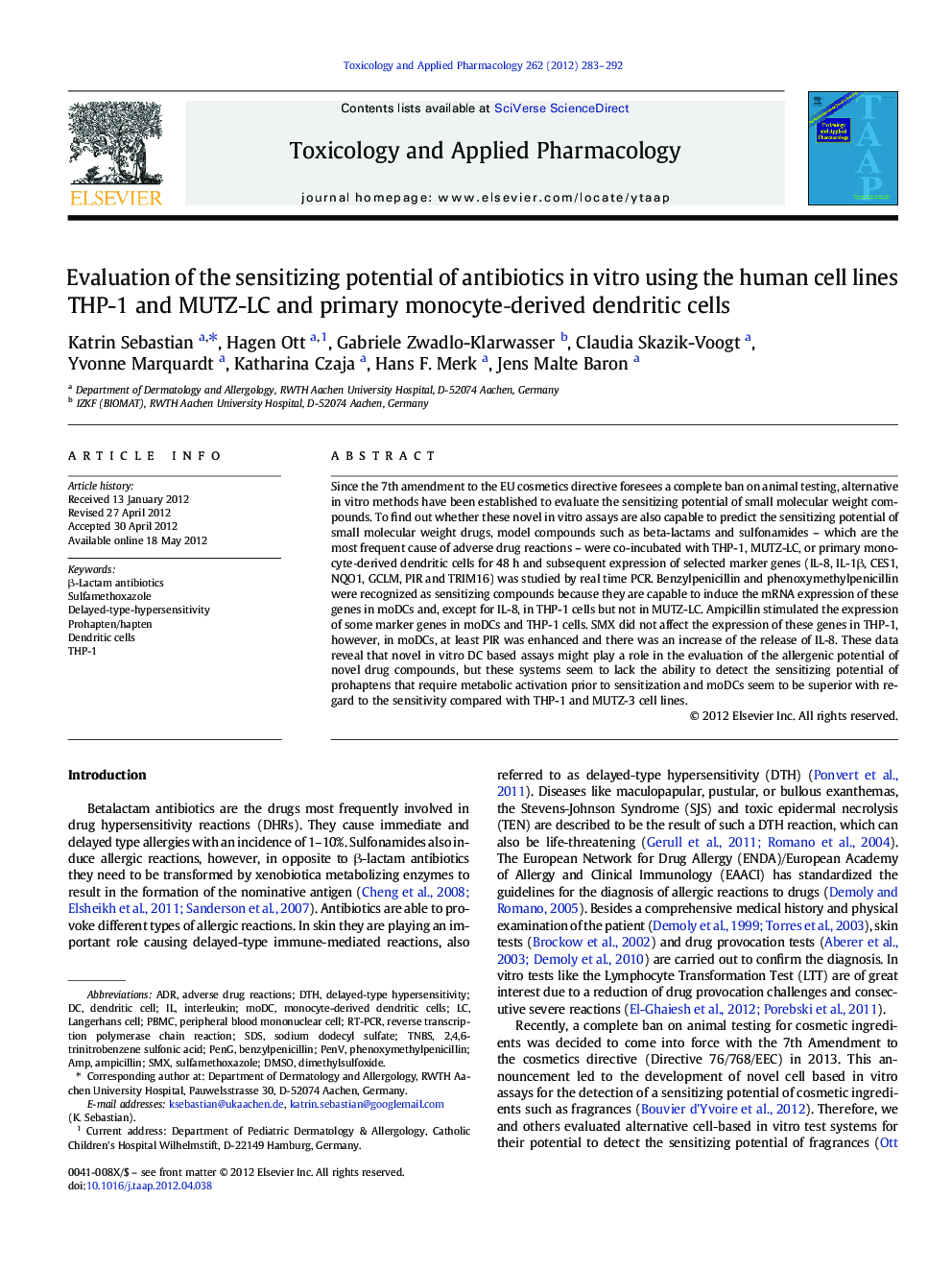| Article ID | Journal | Published Year | Pages | File Type |
|---|---|---|---|---|
| 2569038 | Toxicology and Applied Pharmacology | 2012 | 10 Pages |
Since the 7th amendment to the EU cosmetics directive foresees a complete ban on animal testing, alternative in vitro methods have been established to evaluate the sensitizing potential of small molecular weight compounds. To find out whether these novel in vitro assays are also capable to predict the sensitizing potential of small molecular weight drugs, model compounds such as beta-lactams and sulfonamides – which are the most frequent cause of adverse drug reactions – were co-incubated with THP-1, MUTZ-LC, or primary monocyte‐derived dendritic cells for 48 h and subsequent expression of selected marker genes (IL-8, IL-1β, CES1, NQO1, GCLM, PIR and TRIM16) was studied by real time PCR. Benzylpenicillin and phenoxymethylpenicillin were recognized as sensitizing compounds because they are capable to induce the mRNA expression of these genes in moDCs and, except for IL-8, in THP-1 cells but not in MUTZ-LC. Ampicillin stimulated the expression of some marker genes in moDCs and THP-1 cells. SMX did not affect the expression of these genes in THP-1, however, in moDCs, at least PIR was enhanced and there was an increase of the release of IL-8. These data reveal that novel in vitro DC based assays might play a role in the evaluation of the allergenic potential of novel drug compounds, but these systems seem to lack the ability to detect the sensitizing potential of prohaptens that require metabolic activation prior to sensitization and moDCs seem to be superior with regard to the sensitivity compared with THP-1 and MUTZ-3 cell lines.
► We tested the sensitizing potential of small molecular weight drugs in vitro. ► In vitro assays were performed with moDCs and THP-1 cells. ► Beta-lactam antibiotics can be recognized as sensitizing compounds. ► They affect the expression of metabolic enzymes, cytokines and transcription factors. ► Sulfamethoxazole has no measurable effect on THP-1 cells and moDCs.
